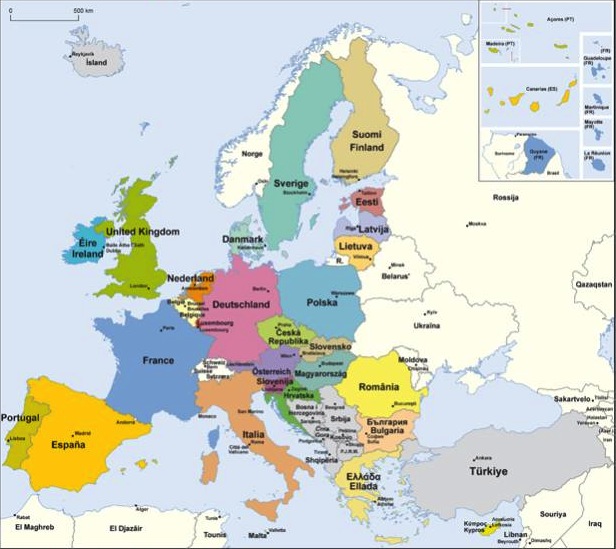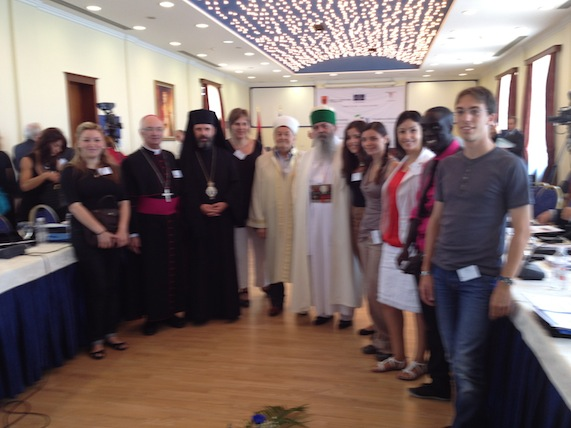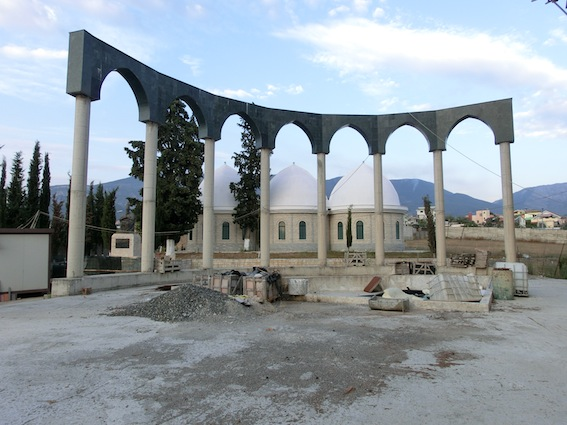Council of Europe Encounter 2-3 septembre 2012 Dürres Albania
The Religious Dimension of Intercultural Dialogue
Contribution to Panel I by François Becker, Secretary General, Representative of the European Network Churches and Liberty at the Council of Europe, and President of G3i, International, Intercultural et Interconvictional working group.
I share what was said by Mme Elkoubi and by those who contributed to our opening session. Nevertheless, I should like to offer some specific observations and to make some comments:
- First of all, I am convinced that fundamental values exist, that is to say absolute or non relative values (at a time, in a culture, in a given socio-political context or in a religion). They transcend cultures, religions and time. These values translate a) what humans are, their nature, their deepest being, what defines their humanity, and b) the conditions that allow each human being to develop, to realise their full humanity, in short to give full effect to who they are. But these values may have a different justification in view of religions and philosophies and may be expressed differently in their cultural context.
- Next, I think that there is no conflict between humanist values (that is to say the values favoured by humanists) and religious values (that is values favoured by the religions). Obviously this is on condition that there is no confusion of a value and its expression, sometimes forming part of a tradition, which may be connected to a culture or a given time. In fact, I really believe that religions cannot fulfil their objectives and realise their goal unless they also contribute to the development of humanity and human beings. So there is no conflict, but there are different perspectives, notably about the origin of these values and the reasons for our teaching them, supporting them and defending them.
- For the definition of common values, I prefer that of shared values. In fact, the idea of shared value implies a personal decision to subscribe to a value. It translates the dynamic that makes us move on from an inherited value (in the family, in our social milieu, in religion etc.) to interiorised values to which we give our personal support. Both the dynamic and the progress are realised in the school, in associations, by taking account of other thoughts and the existence of stereotypes, by openness to the other in debate, or even in disagreement, by critical analysis of inherited values. A shared value is one that one has thought about oneself, it is not like sociological imitation. It is very apparent that a shared value can be the same as the inherited value at its origin, but it has become personal. Shared value also means a value lived with the other that has therefore become a sign through this attestation, then an awakening and an invitation to the sharing of the value..
- It seems to me that it is important not to confuse "rebuke" and "control, correction or affirmation." Censorship is forbidding the expression of certain ideas or giving publicity to certain actions "judged by censorship" to be regrettable or contrary to its objective. On the other hand, control is there to ensure that information offered is correct, to avoid spreading factual errors or rumours. Insofar as censorship should be rejected, control is required to ensure the credibility of oral or written statements.
- I want to add one or two values to the list put forward by Mme Elkoubi with which I agree, together with the restatement of certain values:
- not only justice, but forgiveness and more (but not in place of justice), then then reconciliation.
- Mutual respect, then tolerance. Tolerance does not actually imply respect for the other and the real desire to know him or her and to recognise what (s)he says but not what (s)he thinks (or society thinks) (s)he is.
- An interconvictional outlook, which implies acceptance that the other will ask questions, the preparedness to be criticised by the other not as an aggressive act but as a call to deepen ...
- Solidarity that can go as far as love.
- The separation of what is religious from the state, to avoid any exploitation of religion, to preserve freedom of religion and allow the effective operation of human rights, especially equality between men and women.
- Personal development and accomplishment, which implies a thirst for spirituality which is a specific attribute of the human being and not of religion (an atheist possesses a spirituality like a believer), and what implies the search for the meaning of life and which offers coherence to all the values that one espouses.
- "living at ease together" which is one of the essential conditions for becoming human, of which justice and solidarity are necessary aspects. To do this societies have established important rules of behaviour AT THE TIME AND IN THE SOCIO-POLITICAL CONTEXT in which when they came into being,
BUT these rules, tied to a culture and a time, were very often set up by religions as an absolute and unchangeable divine rule that has therefore come to be preserved at a time when they no longer make sense, and have become causes of division, in regard to certain rules going so far as to separate the "pure" and the "faithful" who respect these rules and the "impure" or the "renegade" who does not respect these rules. Hence it is important to think about customs in a intrareligious or an interreligious dialogue while taking account of its cultural dimension.
- The transmission and interiorisation of these values entails an important function for religion and currents of thought because all these values (except perhaps the separation of what is religious from the state) are favoured, or provoked by religions or currents of thought.
- BUT, because there is a but, the young have lost confidence in the institutions (whether they be religious, political or connected with the world of work), both because they want to have charge of their own destiny or through rejection. This awareness was translated by Grace Davie by the famous "believing without belonging."
Why is this and what can we do?
Because the young do not any longer wish to follow defined behaviour and wish to decide for themselves. They do not want proposals that "fall from the sky" but they want to take their own decisions based on their experience and discussions which take place in different groups (obviously including religious groups). That marks the passage from inherited value to shared value, because the young do not feel that they are concerned by decisions taken in these circumstances, decisions which very often take no account of what they say, even when their opinion is sought (which is rare).
Because very often adults, and among them those who have responsibility in the institutions, do not practice what they preach, there is lack of coherence between what we say and what we do.
So what should be done to restore confidence and develop intergenerational dialogue?
Seven proposals :
- Develop coherence between word and deed at all levels, both in the institutions and no less in the way in which the institutions intervene in society.
- That implies in particular the development of intrareligious dialogue no less with the young than with the different movements within each religion and current of thought.
- That implies that interreligious and intrareglious dialogue, like dialogue with political leaders and the religions and currents of thought should not be limited to leaders, but that they should include the base of society, that is to say that dialogue with the religions should not just involve the clergy, but also involve lay people. In fact it is essential to establish links at the grass roots with the leaders and to involve everyone, in particular the young. The presence of young people and laity at these days has made that abundantly clear.
- Support parents, teachers and group facilitators in their educational work. They are complementary and enhance coherence and solidarity among all actors in education.
- Develop places and spaces of meeting for gatherings, discussion and action carried out in an interconvictional manner.
- Promote the separation of religion and states and fight against the exploitation of religions as much by politicians as by leaders of religions themselves.
- Also extremist acts carried out by people who claim that they belong to a religion should most certainly be condemned by the leaders of these religions.
François Becker
European Network Churches and Liberty


International Intercultural Interconvictional Group






